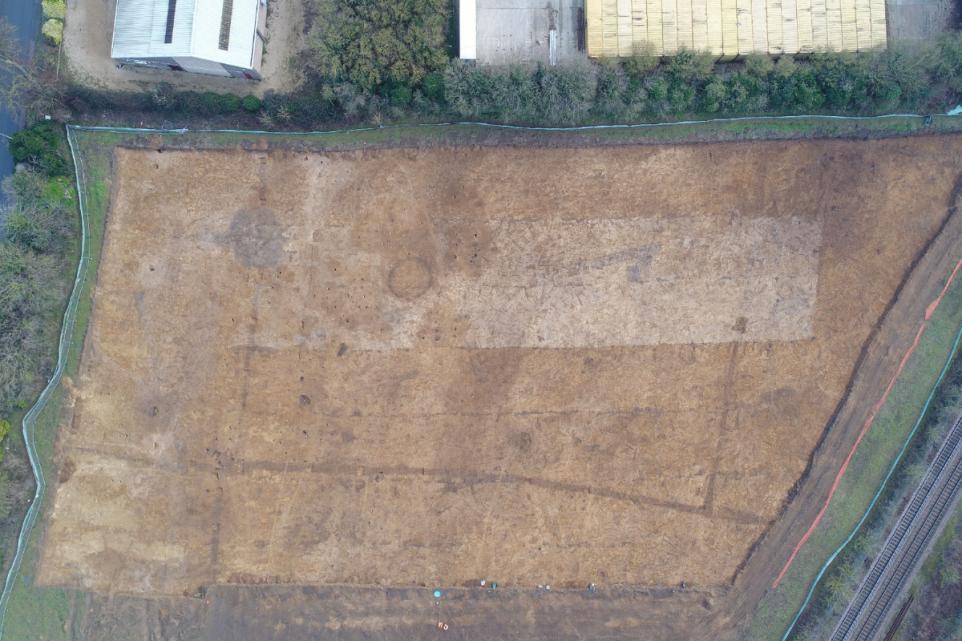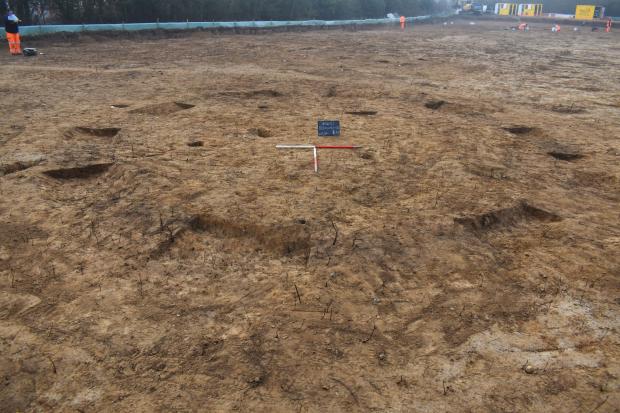
A 3,000-year-old Bronze Age settlement has been uncovered during works to build a new link road in Ipswich.
Archaeologists made the incredible discovery while developing the new road at the end of Europa Way in the west of the town, connecting Sproughton Road to Bramford Road.
Discoveries included the postholes of two roundhouses, numerous four and six-post structures and an ancient cemetery containing ancient burials.
Radiocarbon dating has confirmed the structures were built in the Late Bronze Age, dating to around 1200 BC.
Archaeological works were conducted by Cotswold Archaeology and Oxford Archaeology.

Chris Thatcher, Senior Project Manager, Oxford Archaeology, said: “The Bronze Age remains at Europa Way have been an important discovery to the understanding of prehistoric activity along this stretch of the Gipping valley.
“Some aspects of the settlement remains are of considerable significance in the wider regional context, especially the substantial pottery finds, the cremation cemetery, and the way that the agricultural landscape was organised.
“One distinctive feature of this cremation cemetery, is how close it was to the buildings and daily life – the inference being that the inhabitants of the settlement were likely buried close by.
“This is part of an emerging pattern of Late Bronze Age burial activity, and appears to mark a shift from the Middle Bronze Age preference for major cemeteries, typically within extensive field systems, or the deceased being interred at earlier-established ancestral monuments.”
Other artefacts uncovered at the site include post Deverel-Rimbury ceramics, fragmented fired clay weights, cremation urns, a clay spindlewhorl and worked flint.
It is believed the settlement would have had a mixed agricultural economy, including cereal production and breeding and raising cattle.
Further discoveries from other periods include Neolithic pottery, flint and a gold Iron Age coin.
Councillor Philip Faircloth-Mutton, Suffolk County Council’s Cabinet Member for Environment, Communities and Equality, said: “Suffolk has once again revealed its unique history, and added another layer to our understanding of what life was like for previous generations in our part of the world.
“This is why it is important that the council’s Archaeological Service is here to help record and preserve our past.
“As important and interesting as finds are today, who knows how significant this information might be in generations to come.”
The new Europa Way opened to traffic earlier this year.